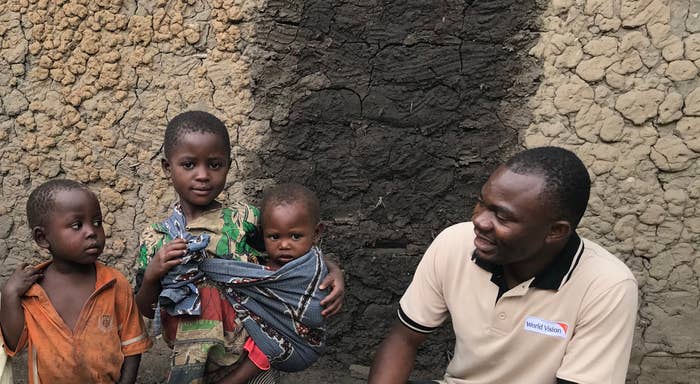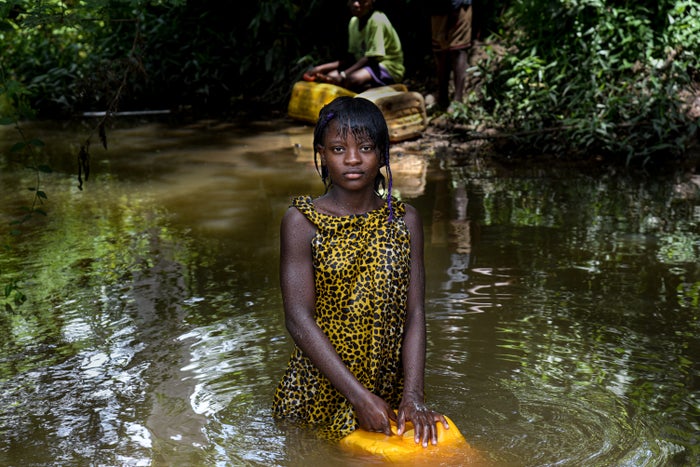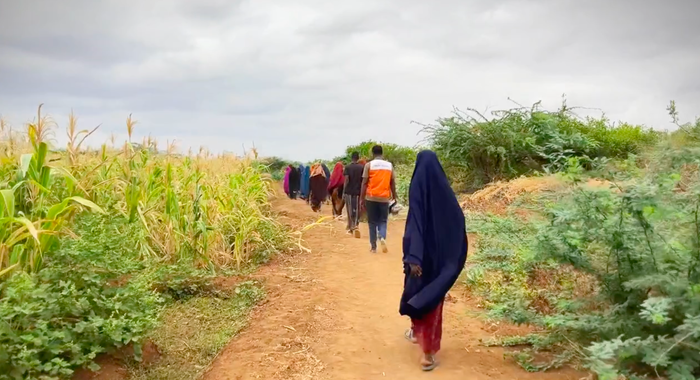*Warning this story contains sensitive material. Names have been changed.
It’s evening in Katwiguru, a community located in the Binza region of East DRC. A mother is nursing her two-month old baby, Diela. A knock at the door finds armed bandits seeking money and the location of Diela’s father, Théophile.
The mother only has beans to offer, they refuse, instead drawing a gun and mercilessly taking her life, in the doorway of the family home. In an instant the course of Diela and the family’s life is changed forever.
No doubt, this story is devastating, yet in East DRC, it's not uncommon. Communities often get caught in the crossfire of armed groups battling each other and the governnment for territory.
Story continues after "In Short"
In Short
- Armed violence affects communities in ways we commonly wouldn't expect
- Food insecurity & acute malnutrition must be solved for together
- 4,560 children have received therapeutic food & medical care in our Binza region health centres since October, 2019
- 2,182 farmers have been provided with with seeds, tools, training and adopted improved agricultural techniques since October, 2019
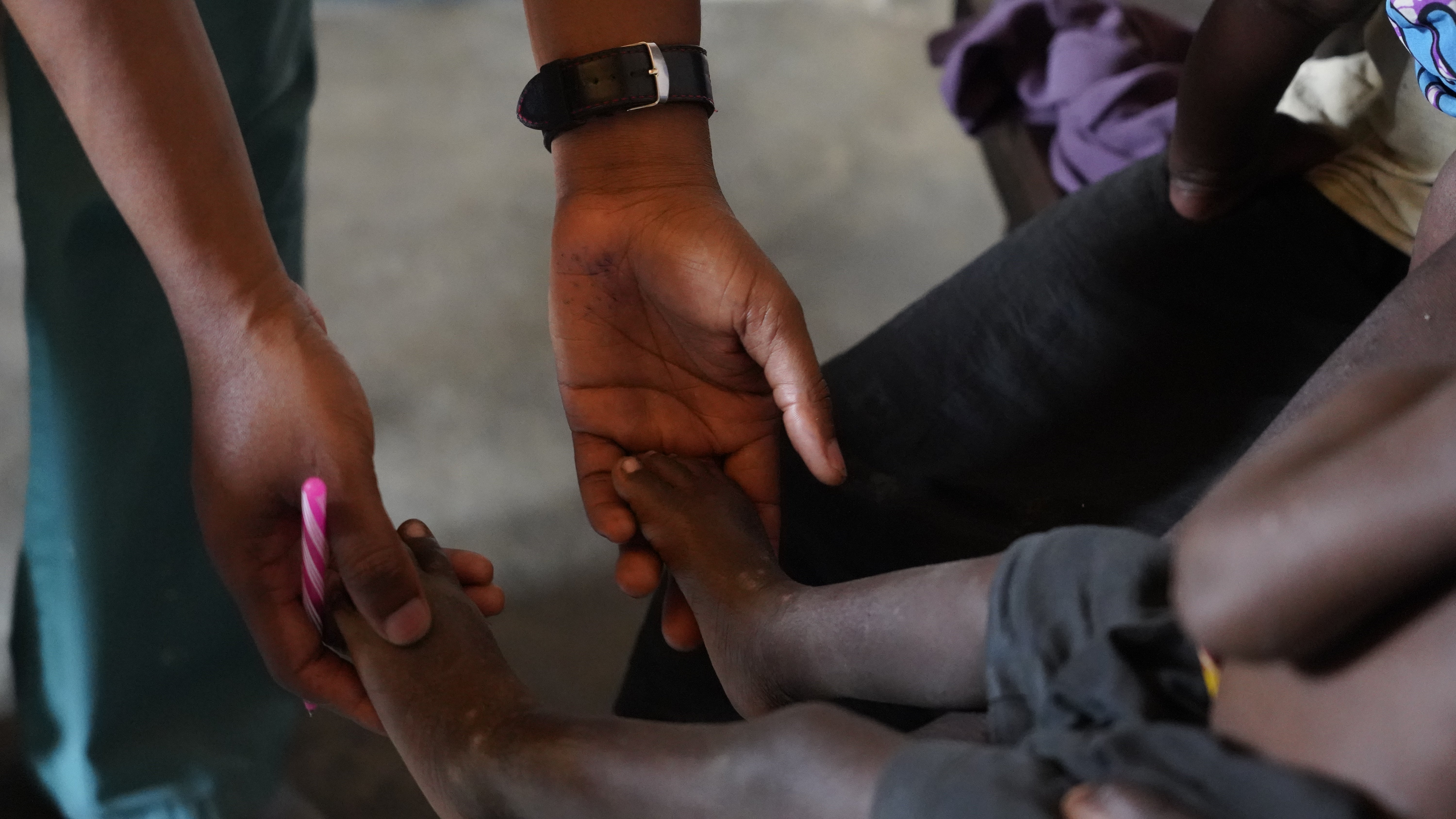
A doctor reviews a child's progress and supplies the mother with therapeutic food supplies. Therapeutic food and/or milk is specifically designed to tackle acute malnutrition. Typically made from peanut-based paste, oil, sugar and powdered milk they also contain added vitamins and minerals to ensure a great source of protein and energy. Therapeutic foods are convenient to transport and they do not require refrigeration.
Geoffrey Denye Kalebbo
The tragedy shook the whole community. Fear grew for the baby's survival. Théophile desperately searched for a woman in the community willing to continue breastfeeding his 2-month-old baby.
Théophile found a women willing to nurse Diela. In return he was required to cultivate all of her fields for each growing season. Despite having just been widowed and a newly single father to three daughters, he had no choice but to accept this agreement.
The arrangement was working out well enough, Diela whilst small was still growing. Théophile continued his commitment, but at some point Diela’s nursing mother backed away from hers and Diela’s health deteriorated. Her busy father missed the signs.

Vianney Ndererimana Sebirayi, World Vision Project Coordinator and Dr. Isabelle Siyara (Senior doctor in charge of the Binza Hospital) meet for discussions about the children in Binza, ongoing malnutrition programmes and regional health centres.
Geoffrey Denye Kalebbo
When walking back from the field one day Théophile arrived to find Diela had fainted. He quickly brought her to the health centre of Kisharo. Stabilised by the centre staff she was referred to the general hospital of Nyamilima for urgent nutritional care at the UNTI (Intensive Nutritional Therapy Unit).
After two weeks of monitoring and medical care, Diela’s condition had improved. Medical staff discharged her and arranged for ongoing treatment with therapeutic food and monitoring to be administered in her local UNTA ward (Outpatient Nutritional Therapy Unit) of Kinsharo.
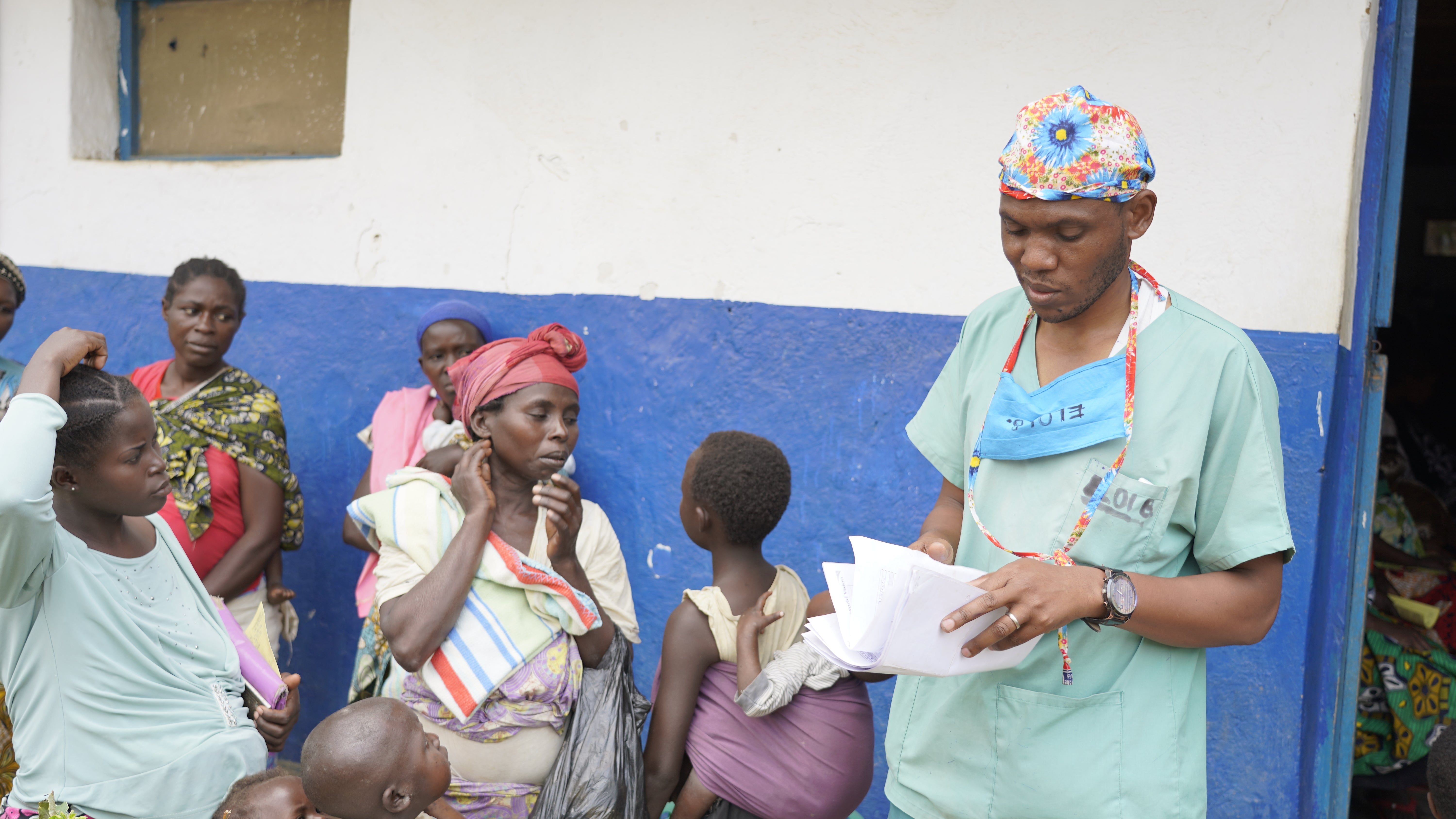
Nursing Director, Elois Bukupi, stands in front of a cross section of parents waiting in line to have their children's progress reviewed at the child in Kisharu Health Centre, Binza in Eastern DRC. This is the clinic Diela's father was able to have her first reviewed. Having access to a local health clinic with dedicated medical staff has been instrumental in seeing the number of children who survive acute malnutrition strongly increase in the area.
Geoffrey Denye Kalebbo
Despite the dangers in the region, Childhood Rescue is committed to delivering locally run programmes that help save the lives of children by addressing acute malnutrition, both medically and socially, through health clinics, therapeutic food distribution, educational workshops and social worker visits.
Project manager, Vianney Ndererimana Sebirayi states, “As the person in charge of the implementation of this project, I can testify to the great impacts recorded in the area, including the recovery of Diela and many other children, lead by Mr Jimy Ndutsiye, the head nurse of Katwiguru Health Centre.”
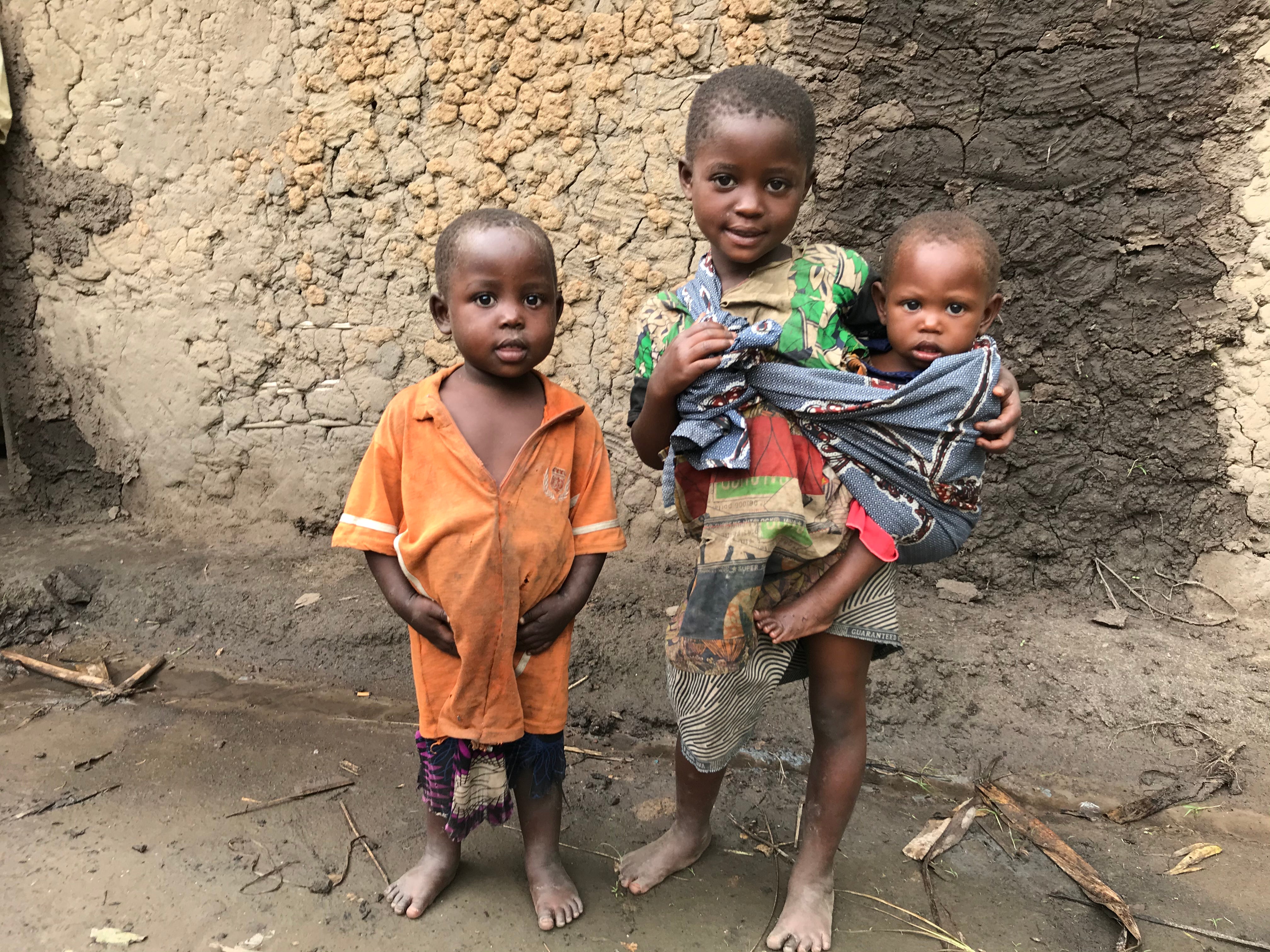
Diela, with her two elder sisters. The sisters are nourished and growing, however the violent act that robbed them of their mother means they require psycho-social support to ensure they can also grow emotionally.
Rodrigue Harakandi
18 months on, Diela and her two older sisters are in very good physical health and their father has joined the local Food Security Programme.
Food Security Programmes empower local families to grow and harvest crops, ensuring consistent and nutritious food for children. 2,182 farmers in the Binza region have been provided with with seeds, training and adopted improved agricultural techniques to improve production despite limited access to fields and the effects of climate.
The local Childhood Rescue programme helped Diela to survive and recover and has enabled Théophile to grow and provide nutritious food for his daughters also begin to generate income. And we can see the impact below... Diela is now beginning to stand on her own and one day, she will be strong enough to build her own future.
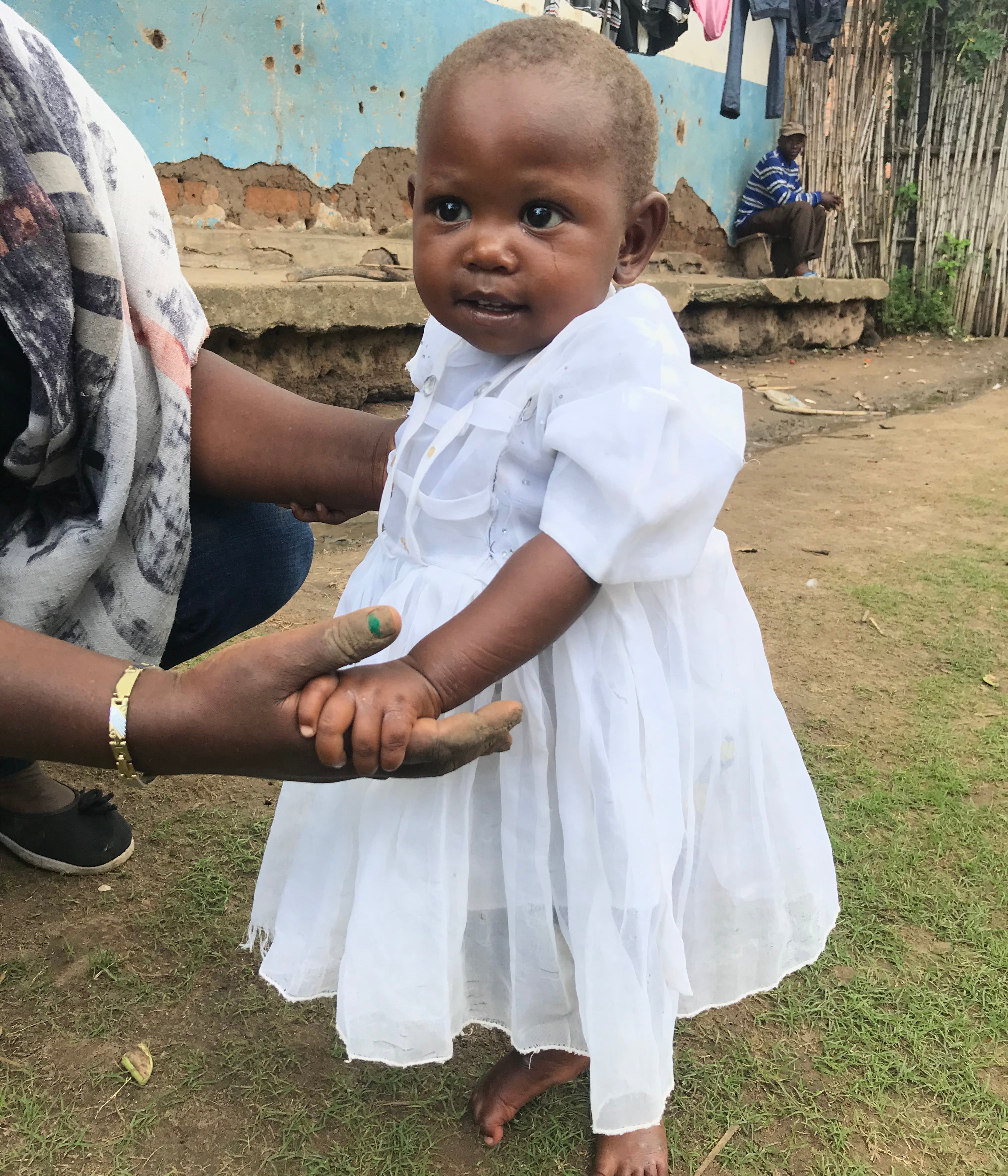
Diela at 18months old is now in recovery and growing strong. Her growth is monitored by health centre staff who are pleased with her progress.
Rodrigue Harakandi
What can I do?
It’s easy to feel helpless in situations like this but rest assured… you, us, everyone, together, can help make life-changing impact. And we are!
Here are two different ways you can be a part of the change.
- 1
Donate
Every gift makes a difference. Our Childhood Rescue fund helps children living in the world’s most dangerous places.
Donate Now - 2
Share on Social Media
Raising awareness is vital. Help make people aware of the situation and the difference we can make, together.
